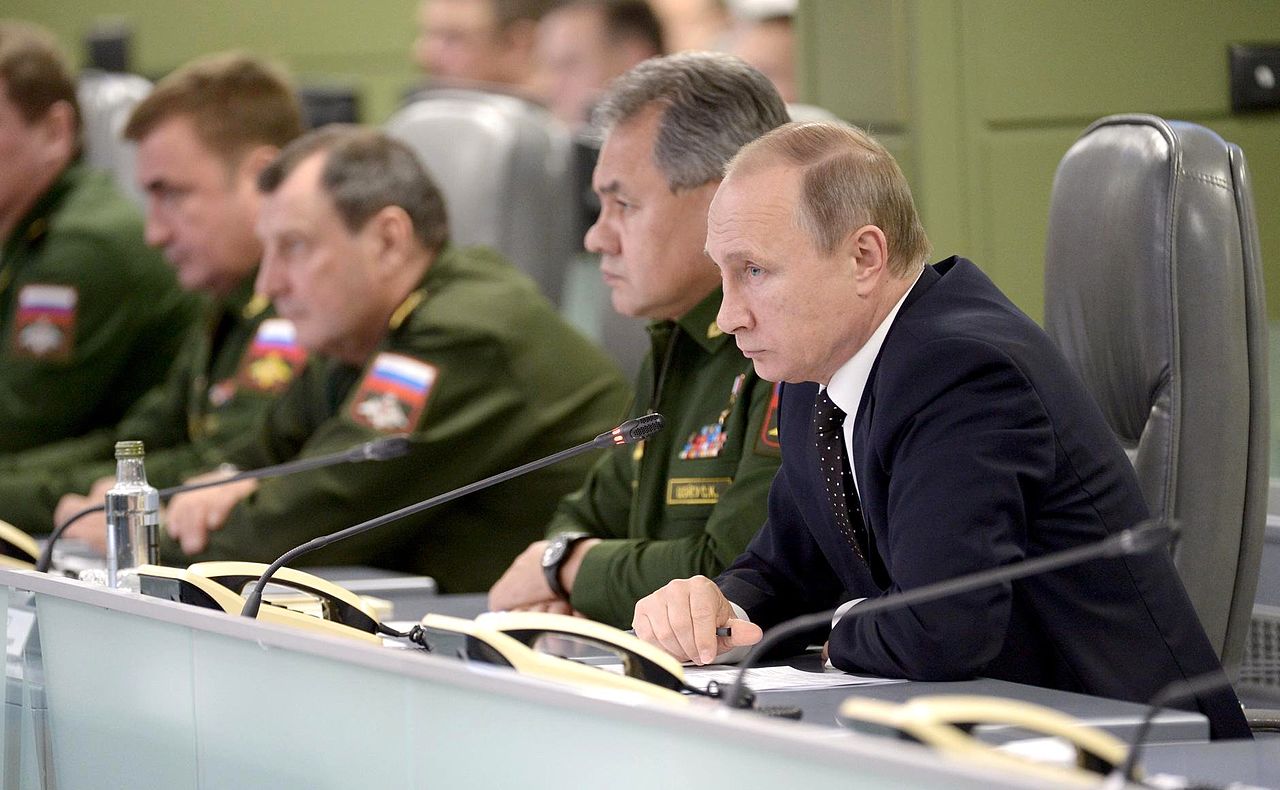by Mark N. Katz
Putin shocked the world last September when he sent Russian forces to intervene in Syria. He shocked the world again this week when he announced that he was withdrawing the main part of those forces.
The Western reaction has been, as usual with anything Putin does, to declare what a clever move this is and to identify reasons for its being so. Russia’s withdrawal, according to these observers, allows Moscow to avoid becoming bogged down in endless fighting there and puts Syrian leader Bashar al-Assad on notice that Russian support for him is not unlimited and so he’d better cooperate with the Russian-backed peace negotiations. It also eases tensions between Moscow and the West and thereby increases the prospects that the current Western economic sanctions on Russia stemming from its actions in Ukraine might be reduced. Finally, it assuages the Russian public, generally supportive of Putin, that also wishes to avoid “another Afghanistan” in Syria.
Putin’s announcement of the partial (if not total) withdrawal of Russian forces from Syria may advance all of these goals. But is it really the extremely clever move that so many give him credit for? After all, if President Obama called Iraqi Prime Minister Haider al-Abadi to inform him that he was withdrawing the main part of the U.S. contingent sent to Iraq to fight the Islamic State, and that the withdrawal would begin the very next day, this would not be regarded as a “clever move” but as cutting and running. That Putin’s doing this is regarded differently may have less to do with his move actually being clever than with the West’s tendency to regard everything he does—so long as it is a surprise move—as somehow outsmarting us.
There are already signs, though, that various parties in the Middle East do not see Putin’s withdrawal announcement as a “clever move,” but as a sign of diminishing commitment to the Assad regime. Although Iranian officials are trying to put a positive spin on the Russian withdrawal announcement, Tehran and its allies are reportedly concerned that Moscow’s move signals a willingness on Putin’s part to see Assad step down, which Tehran does not want. In addition, at the very end of an article about Russia and Syria appearing in The Washington Post on March 16, an unnamed official from Hezbollah (the Iranian-supported Lebanese militia that has fought Israel in the past but is now devoting its efforts to supporting Assad in Syria) noted that, “there is fear that Hezbollah would be paying the price” of the Russian withdrawal. (Interestingly, Israeli President Reuven Rivlin has rushed to Moscow to seek assurances that the Russian withdrawal will not embolden Iran and Hezbollah in Syria, where the Israelis saw the Russian presence as a restraining influence on them).
More ominously the same Post article noted that Jabhat al-Nusra, the Syrian al-Qaeda affiliate that has been active in fighting the Assad regime, was “preparing an offensive.” Saudi Foreign Minister Adel al-Jubeir, whose government has long called for Assad to step down and has supported the opposition to him, unhesitatingly declared Moscow’s withdrawal announcement to be “a very positive step.” In other words, the anti-Assad forces in the region see the Russian announcement as an opportunity to make gains against the Assad regime either on the battlefield or at the negotiating table (or perhaps both).
So, will Putin’s withdrawal announcement prove to be the “clever move” that many in the West see it as? Or is it confirmation that Moscow has decided to let regional actors fight it out among themselves in Syria as many in the Middle East seem to think? All that can be said for sure is that in a few weeks or months from now, Putin will undoubtedly make some other surprise move—either in Syria, Ukraine, or somewhere else—that will give rise to a similar debate.
Mark N. Katz is a professor of government and politics at George Mason University.






Look, Russia (and Putin) are more interested in their long term interests in the region than in Bashar Al Asad. One calculation in this move might be that he (Putin) does not want to see Russia’s image so tarnished in Syria that it would make it impossible to work out a relationship with any post Asad government.
Alternatively the Russians might have gotten what they wanted from this. The opposition to Assad is weakened, The Russian bases expanded, the Daesh/AQ capability to operate severely limited and the opposition to Assad now knows that there may be a limit to how far they can go.